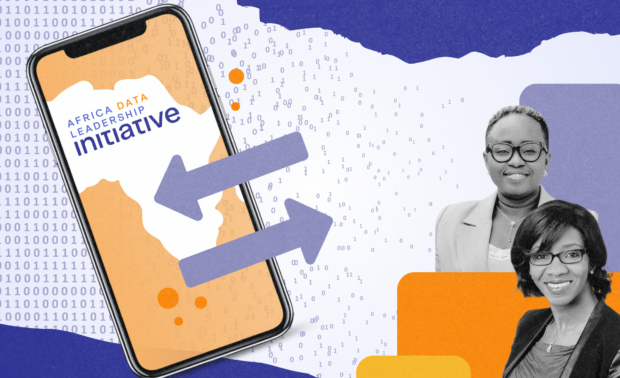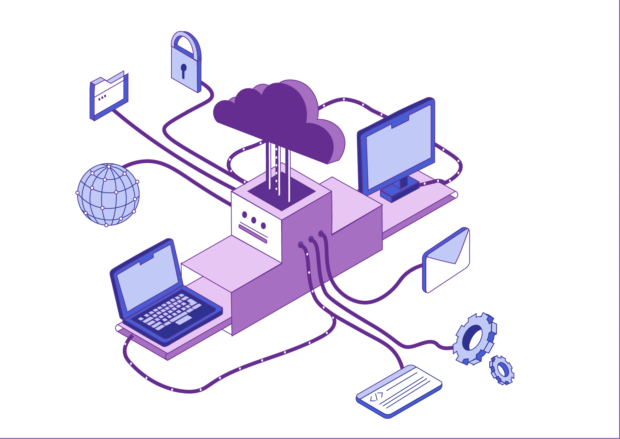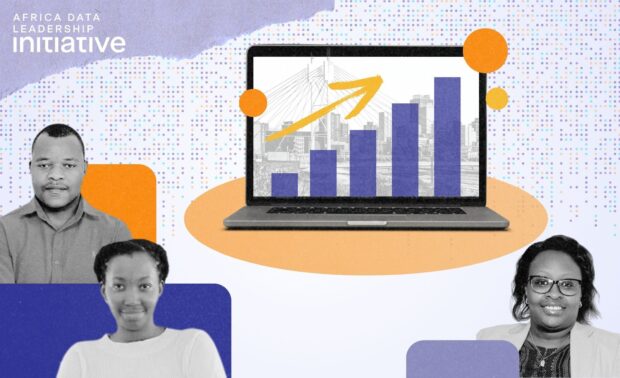Imagine the journey of a single data point – a birth certificate issued in a local clinic. At first, it is just a line entry in a registry. But that line becomes the gateway to the child’s future. It is used to enroll them in school and to access vaccines. When the family migrates to a new city, the same data enables them to register for health services without having to start over. Years later, it forms the foundation of a digital ID that unlocks access to banking, government benefits, and employment. At every step, the same data point – when shared responsibly across departments – powers more seamless, life-enhancing services. Now multiply that by millions — across hospitals, schools, and ministries — and you begin to see the scale of data that is generated every day, and the benefits it can create.
But data on its own doesn’t create impact. It’s what we do with it that matters. And that’s where integrated national data exchange systems become so vital to society.
Governments around the world are investing in these systems to improve how they deliver services, streamline operations, and support wider innovation in the economy. Making this data flow seamlessly and securely is no easy task. This was the focus of the 5th meeting of the 2025 Africa Data Leadership Initiative (ADLI). To guide the discussion, we were excited to showcase the work of ADLI cohort members in Ghana and Rwanda:
- Estelle Indriets, Senior Manager, Policy and Partnerships, Irembo (Rwanda)
- Solomon Richardson, Director, Technical Services, National Information Technology Agency (Ghana)
Several African countries have standout examples of integrated national data exchange systems – with different origin stories.
Ghana
As Solomon explained, Ghana’s digital transformation journey started with a very specific need. While different agencies were running various services, money was being collected into various accounts and there was no way to tell how much money in aggregate the government was collecting. The government realized it needed a unified payment gateway that would allow it to have a clear picture of its purse.
To address this need, Ghana put together a consortium of public and private partners to build a gateway to connect these disparate accounts. The gateway was then shared as an API to connect all government platforms that provided online services. Within this centralized system, payments, invoices, and receipts could be organized in one place by collecting the information from the various service providers across government. The gateway was so successful that the government of Ghana decided to transform it into a one-stop shop for all interactions with government.
Ghana.gov is now the portal where users can discover, consume, and pay for services in one place. The platform is built with reusable modules – like user profiles and payment components – to work across all services. Now, users can carry out most of the process of, for example, renewing a driver’s license or passport, online at their own convenience.
Looking forward, Solomon and the team behind Ghana.gov are continuing to improve and expand upon the platform. They have future plans to further integrate with Ghana’s widely-adopted digital ID and to further harmonize the API-based system into a more integrated data exchange platform.
Rwanda
Rwanda’s Irembo is a technology company that partners with government ministries to design, develop, and operate platforms which enable them to process applications, issue official documents, and process payments.
A decade ago, Rwandans’ interaction with government would require queuing for hours, with physical documents in hand, likely needing to return days later to do it again. It was a long process for government officers, and a poor user experience for citizens. Today, IremboGov pursues a “zero trip, zero paper” strategy. For citizens, it is a one-stop portal for over 240 public services, allowing them to access these services digitally and remotely.
As Estelle explained, Irembo works with key systems and registries from different agencies, with over 35 partners across the government. Using an API that safely and securely connects these registries, the platform allows for smarter tracking of vital life events like birth, death, and marriage. By unlocking data flows across government, the platform integrates services across ministries, sectors, and all aspects of society. The platform enables a variety of services like IremboPay, IremboHealth, and IremboPlus (a marketplace).
Irembo estimates that its digital services have saved over 120 million hours, reducing service access times from 5 days to 24 hours. By reducing friction for access to government services, Irembo makes government work better for people.
The digital transformation journeys of both Ghana and Rwanda prove that national data exchange systems not only help to digitalize services but also build trust in government.
While there is no one-size-fits-all approach, sharing experiences helps to identify important frameworks and trade-offs.
1. A thoughtful public-private-partnership model can mobilize the strengths of each sector.
Both Ghana.gov and Rwanda’s Irembo were made possible through public-private partnerships (PPPs). In the case of Ghana, the engagement started on a case by cases basis: the government had a challenge, the private sector provided a solution. As the partnership formalized, the government became the service administrator, and the private sector became the enabler. Thanks to the robust policy framework in place for PPPs under the Ministry of Finance, the partnership was buttressed by a financial model whereby the private sector collects a percentage of payments processed. With billions of dollars in payments handled, even a 0.2% fee brings in significant revenue and can be a strong incentive for enterprises.
Similarly in Rwanda, very specific and well-written SLAs, between different government ministries and private sector entities, enable its PPPs to create solutions in a secure and cost-efficient way. As the private sector often can contribute more technical skills, Irembo treats each service owner as a client, and works hand-in-hand to understand their needs, build capacity, and train officers.
Both countries demonstrate that PPPs are a great way to capitalize on the strengths of each sector without shying away from the risks.
2. Inclusive design strategies ensure equitable access and increase adoption.
The success of both Ghana.gov and Irembo is not unrelated to the fact that they are guided by inclusive design. Designing for every possible user strengthens adoption and ensures a better service experience for as many people as possible. For example, Rwanda’s Irembo provides a plethora of different service access points to ensure no one is left behind. They provide the online portal IremboGov, but also a network of agents and physical walk-in service centers, plus round-the-clock support available via social media and toll-free call centers. In addition to the online portal, users have USSD access – which does not require a smart phone or internet access.
Ghana.gov was also designed for inclusion with multi-channel access. Ghana has deployed an app version of the portal called Citizens App – which according to Solomon, sees even higher usage than the web browser. For payments, Ghana.gov also allows for diverse options from USSD to credit cards to in-bank payments. Every bank in the country is equipped to access the system, pull an invoice, and take a payment.
3. Data governance based on consent, privacy, and security is paramount.
Both speakers emphasized that ensuring data flows responsibly is not a technical add-on, but a crucial responsibility. They also expressed that technology can be one of the most effective ways to ensure proper management of sensitive data by following data protection provisions. For example, Ghana is hoping to incorporate a version of India’s DigiLocker – a personal wallet providing instant access to digital records and important documents, with consent and privacy baked into the technology. Irembo ID also allows citizens to securely control when service providers get access to their certificates and personal records.
However, there are opportunity costs and trade-offs that must be considered in any approach to data governance. In dealing with personally identifiable information, Rwanda decided to host the data locally. This allows for tighter controls over data access but means the cost of hosting the data is high. Decisions around such trade-offs will require careful consideration – and will be different for every context.
Integrated data systems unlock better services and smarter policies.
Integrated national data exchange systems aren’t just about pipes and platforms. They’re about unlocking the full potential of data — for better services, stronger institutions, and more opportunities for people. Choices around governance, data ownership, infrastructure, and legal frameworks can either enable progress or become barriers. This ADLI session focused on the decisions that shape not just how these systems work — but whether they work for the people they’re meant to serve.
Next week, we will dive even deeper into inclusive data governance practices, with an exploration of the multiple ways in which data is controlled through law, regulatory action, and technologies in a comprehensive national data strategy. Follow along on LinkedIn.



